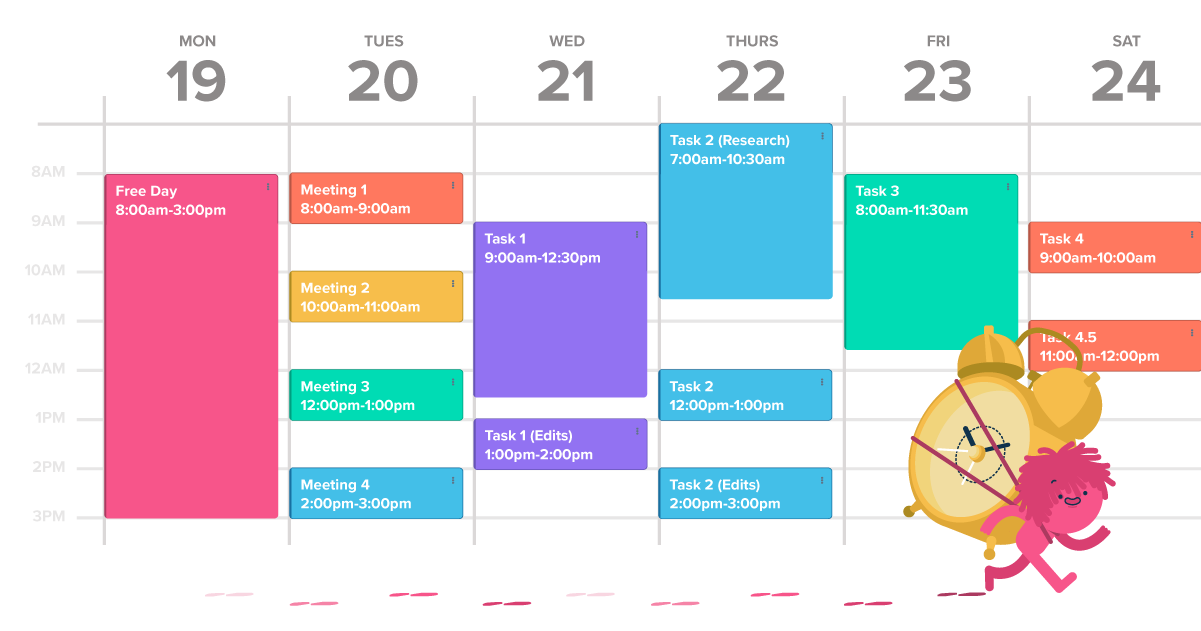Practical Exams
Practical exams evaluate our ability to apply theoretical knowledge to real-world scenarios. These exams put our abilities to the test by conducting scientific experiments, showcasing artistic skills, or performing practical tasks. Practical exams test our ability to use hands-on applications, think critically, and solve problems. In my Art A-Level, I was often confronted with practical exams.
Here is my favourite as an example: Build a model of a Gothic and a Romanesque church. You can choose your material, and the footprint shouldn’t be more than a DIN A4 paper.
Oral Exams
Oral exams are designed to test your knowledge in a conversation, rather than writing an answer on paper. Asking questions or participating in discussion sessions, oral assessments test our ability to convey ideas, think on our feet, and speak clearly. They can be tricky when you are nervous and have to talk in front of people. Try to be confident and impress them with your knowledge!
For math, you can expect something like this: Determine the zero points, extrema and inflection points of this function x^4 – 52x^2 + 196.
As an answer, you will show your calculation in front of your teacher and explain it step by step.
For history: In discussing nationalism, historians are divided over whether or not people had any sort of national identity prior to the nineteenth century—many say that it had its roots in much earlier periods. Do you agree? What other kinds of identity competed with national identity in two periods (defined above) of European history?
Here, you will present your opinion and explain it with arguments and examples to your teacher.
Essay Exams
Essay exams are written assignments that require you to provide thoughtful, well-structured responses to questions or prompts. These exams require you to demonstrate your understanding and analysis of the subject. Grab your pen or keyboard, let your imagination run wild, and use your words to create a vivid picture on the test page.
Here are a couple of Examples used in past A-Level Exams:
1.‘Dramas on television or film are never as effective as a live performance.’ Discuss.
2. Consider the view that people imprisoned for crimes should lose all their rights.
3. To what extent can individuals shape their own lives when the world is so unpredictable?
Now, I can’t provide you with a complete answer, but if you are eager to know more about writing excellent essays, have a look at this article on essay exams.
Open-Book Exams
Open-book exams give us the opportunity to refer to our study materials, notes, and other resources during the test. But don’t be fooled! These exams still require a solid understanding of the subject and the ability to locate and apply information effectively. So, use your resources wisely, and harness the power of knowledge at your fingertips!
Example:
- Essay Question: Discuss the major causes and consequences of the Industrial Revolution. Utilise your textbook and other relevant sources to support your analysis.
- Calculation Question: Using the financial formulas provided in your course materials, calculate the net present value (NPV) of an investment project given the cash flows and discount rate provided. Show your calculations and reference the appropriate formulas.
Take-Home Exams
Take-home exams give you the freedom to do exams outside the classroom. These exams usually have more significant tasks or projects that need to be researched, looked at, and answered carefully. With take-home exams, you can explore topics deeply, take your time to create great work, and use your critical thinking skills or practical skills.
Because there are more like long-term exams, they can be on any topic, for example, an essay about an ancient culture or a painting. It could also be something practical, like creating a model of a church. The trick is time management.
Project-Based Exams
Project-based exams offer a platform to showcase creativity, critical thinking, and problem-solving skills. These exams involve completing a project or assignment that requires research, analysis, and the application of knowledge to real-world scenarios. Whether it’s designing a model, conducting experiments, or creating multimedia presentations, project-based exams encourage us to think outside the box and let our ideas shine.
Example: Project Description: Design and Create a Sustainable Garden. Your task is to design and create a sustainable garden. Your garden should incorporate principles of sustainable landscaping, such as water conservation, the use of native plants, and environmentally friendly practices. The project should include the following components:
- Design Plan: Develop a detailed garden design plan that includes the layout, plant selection, and specific features of the garden. Consider factors like sun exposure, soil conditions, and water management in your design.
- Research and Documentation: Provide a written report explaining the sustainability aspects of your garden design. Describe the reasons behind your plant choices, irrigation methods, and any other sustainable practices you have incorporated. Include references to reputable sources that support your design decisions.
- Implementation: Implement your garden design by actually creating the garden. Document the process with photographs or videos, and include a brief description of the implementation steps you took.
- Reflection and Evaluation: Reflect on the project and evaluate the success of your sustainable garden design. Discuss any challenges you encountered, lessons learned, and improvements you would make in hindsight.
Research Papers or Theses
Research papers or theses are written works that look at a specific topic, do a lot of research, look at the findings, and put them all together successfully. These exams require good research skills, the ability to look at sources, and the ability to write academically. You’ll probably come across these at university because they give students a chance to discuss a specific topic, show their critical thinking skills, and help with academic discussions.
For research papers and theses, you will either get a topic or provide a question yourself—for example, the impact of the Anglo-Japanese Alliance from 1905 on Korea.
Group-Based Exams
Group or team exams require students to work together to solve problems, talk about concepts, or accomplish tasks. They show how collaboration is important for success. Group exams encourage you to think about different points of view, respect different opinions, and work well as a team. So, get together with your friends and work together to get through these exams.
Example: Designing and building a sustainable garden could be a group project or developing a marketing campaign.
Laboratory Exams
Laboratory exams test your practical skills, scientific methods, and your ability to analyse and interpret data. You work in the lab, doing tests, watching things happen, and making judgments based on facts. These exams test accuracy, attention to detail, and scientific reasoning.
Example: Determination of Enzyme Activity
In this lab exam, you will be performing an experiment to determine the activity of a specific enzyme.
The experiment will involve the following: Experimental Setup, Enzyme Kinetics, Data Analysis, Discussion and Interpretation, Conclusion, and Lab Report.
Presentation Exams
Presentation exams require you to give a speech about a specific topic or subject. Instead of having a conversation with your professor or teacher, you present your knowledge to the class. They test your ability to organise information, use visual aids, and talk about ideas with confidence and ease. Your presentation shows how well you can speak to others, get them interested, and show that you understand the topic.
Here, as well, the presentation could be about anything. If you’re studying animals or animal behaviour, you might have a topic related to the rodent Capybara and its habitat.
Online Exams
Online exams are conducted online, which allows students to take them from anywhere. This has become increasingly prevalent in today’s digital age, partially thanks to the Covid pandemic. The ability to adapt to different testing environments and familiarity with online tools is crucial for this type of exam. Online assessments can take various forms, including multiple-choice, essay-based, and timed formats. So, be prepared and have your charger at hand.
Quizzes
Quizzes are usually short and focused, letting you test your knowledge in a specific way. They provide small assessments designed to reinforce learning and monitor progress. These assessments are done to see how well people understand a topic or idea and find areas that need to be looked at more closely. Whether it’s a surprise pop quiz or a classroom activity, quizzes keep you on your toes and encourage learning.
Standardised Exams
Standardised exams, like A-Levels, GCSEs, and others, measure knowledge and skills in a wide range of subjects. These exams play a significant role in college admissions and beyond, testing our proficiency in critical areas. They require thorough preparation, good test-taking skills, and a calm mindset. For your Exam Prep you can use our StudySmarter Study Plan!
What Are Common Exam Question Formats?
Lastly, let’s check out some common question formats which are used in exams:
Multiple Choice
Multiple-choice exams offer a range of answer choices for each question. Remember those moments of uncertainty when you debated options A and B? Challenging when you don’t know the answer. Multiple-choice exams test our ability to analyse options, make informed decisions, and select the correct answer.
Here’s one example: Who painted the famous ‘Mona Lisa’?
- Michelangelo
- Leonardo da Vinci
- Phidias
- Vincent van Gogh
And yes, you’re correct, it was Leonardo da Vinci.
True/False
True or false? That’s the ultimate question in these exams. These exams test our skill at judging the truthfulness of claims. But beware! Sometimes, false statements may appear to be true. You should remain alert and carefully evaluate each statement. Trust your judgment, sharpen your critical thinking skills, and separate the truth from the falsehoods.
Example: Is the Great Wall of China visible from Space? Or is the Amazon the longest river in the World?
Tip: The first one is a myth, and the Nile is ca. 250 km longer.
Fill-in-the-Blank
For fill-in-the-blank exams, you are required to fill in the missing words or phrases in the provided sentence. Obviously. They challenge our ability to remember and understand details, it’s like completing a puzzle, where each missing word is a crucial piece. Draw upon your knowledge, read carefully, and fill in the blanks with confidence.
Example: Fill in the blank: I’m reading a book about antigravity. It’s impossible to put _______.
Answer: I’m reading a book about antigravity. It’s impossible to put down! 😀 Funny, I know.
Matching
Matching exam questions require pairing or matching items from two different columns, such as terms with their definitions or cause-and-effect relationships. It’s like finding the perfect dance partner for each concept. Get ready to make those connections, create meaningful pairs, and dance your way to success in matching exams!
Example: Match the scientists with their contribution to science*
| 1. Isaac Newton | A. Theory of Relativity |
| 2. Albert Einstein | B. Laws of Motion |
| 3. Marie Curie | C. Theory of Evolution |
| 4. Charles Darwin | D. Radioactivity |
Short Answer
Short answer exams test your ability to answer questions or prompts in a short and specific way. Here, it’s important to keep things short. You demonstrate our understanding of the subject by presenting our ideas succinctly and directly. It is essential to get straight to the point and make each word count.
Example: Define a noun and give an example.
And yes, example would be a great answer to this.
Why not test yourself with the free StudySmarter AI, that can generate multiple mock exams tailored to your studies? Try it now, all for free: StudySmarter AI
Good Riddance!
*1B, 2A, 3D, 4C
How we ensure our content is accurate and trustworthy?
At StudySmarter, we have created a learning platform that serves millions of students. Meet the people who work hard to deliver fact based content as well as making sure it is verified.

Gabriel Freitas is an AI Engineer with a solid experience in software development, machine learning algorithms, and generative AI, including large language models’ (LLMs) applications. Graduated in Electrical Engineering at the University of São Paulo, he is currently pursuing an MSc in Computer Engineering at the University of Campinas, specializing in machine learning topics. Gabriel has a strong background in software engineering and has worked on projects involving computer vision, embedded AI, and LLM applications.
Get to know Gabriel




